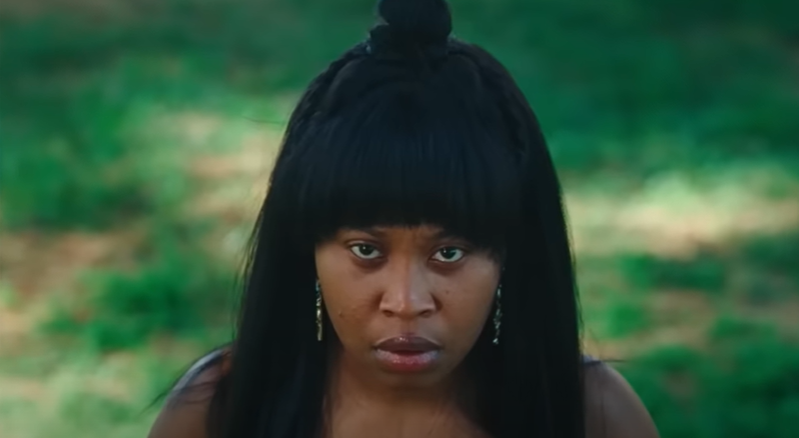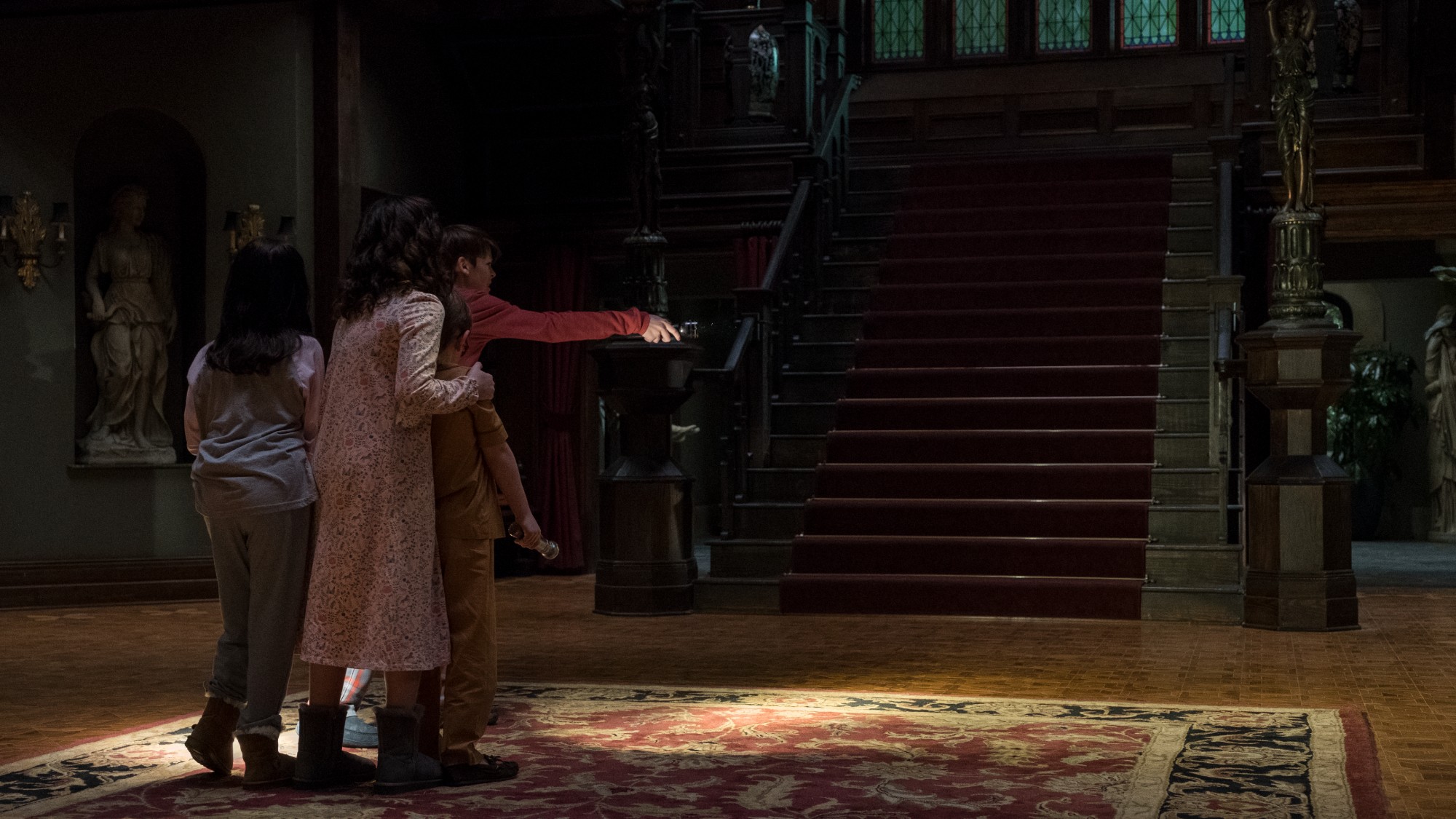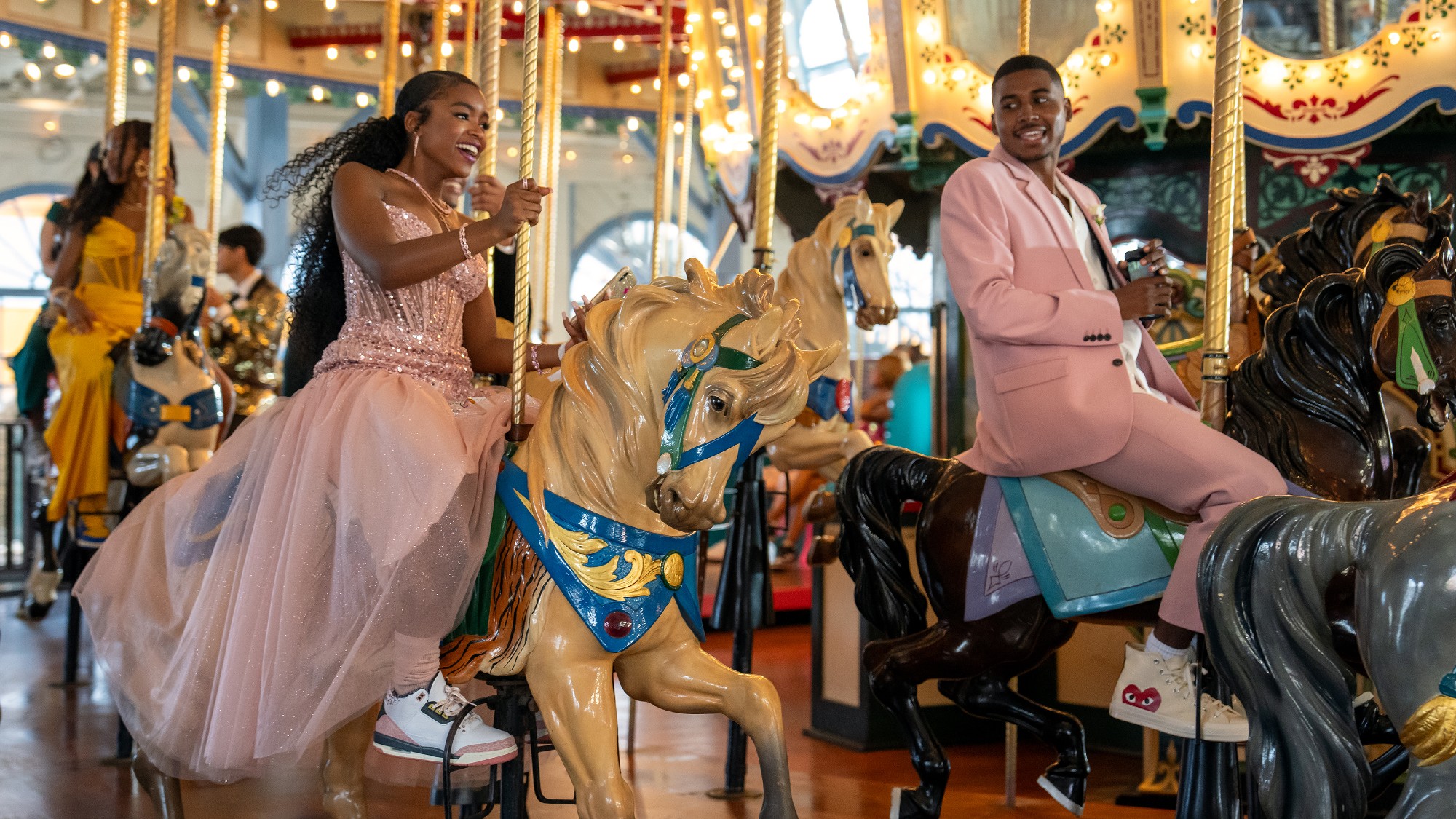What critics are saying about Swarm
Is the new Amazon Prime show a smart critique of toxic fandoms or an unfair swat at the Beyhive?


A free daily email with the biggest news stories of the day – and the best features from TheWeek.com
You are now subscribed
Your newsletter sign-up was successful
In March, Amazon Prime debuted Swarm, "a thriller that serves as a spikey admonishment of celebrity worship," Aisha Harris writes for NPR. Co-created by Atlanta creator Donald Glover and Janine Nabers, a writer and co-executive producer of Glover's previous project, the seven-episode miniseries explores "stan" culture and the toxic fandoms that push their love for their favorite celebrities to the extreme.
The show follows Dre (Dominique Fishback), the self-proclaimed biggest fan of Houston-born pop star Ni'Jah, "an obvious, translucently veiled analog" for Beyoncé and her loyal legion of fans known as the Beyhive, Harris adds. "Yet for all the highly specific Beyhive Easter eggs," Swarm is "only about Beyoncé in an abstract sense," Harris says. Rather, its creators' true purpose is to take "the idea of the devoted fan" and stretch it "to its limits" by "calling upon the tendencies of obsessive fans and sadistic serial killers both fictional and real."

When a tragedy involving her foster sister (played by Beyoncé protégé, Chloe Bailey) pushes Dre over the edge, the #1 Ni'Jah fan takes off on a cross-country homicidal rampage, targeting anyone who trash-talks her fave. Such "serial violence is the dark-comic foundation for the show's satire of fan culture and social media, and its depiction of their effect on someone who has always felt like an outcast," says Mike Hale in The New York Times, Though Hale commends Fishback for her portrayal of Dre, the character nonetheless "remains a bit of a hollow shell," he says. Indeed, while Swarm touches on several "potent topics like female empowerment and identity, and the ways in which Black women are alternately condescended to and ignored," those ruminations don't necessarily "come together in a way that makes dramatic sense."
The Week
Escape your echo chamber. Get the facts behind the news, plus analysis from multiple perspectives.

Sign up for The Week's Free Newsletters
From our morning news briefing to a weekly Good News Newsletter, get the best of The Week delivered directly to your inbox.
From our morning news briefing to a weekly Good News Newsletter, get the best of The Week delivered directly to your inbox.
"Everything about the show's story of a disturbed fan is meant to make you think deeply about what it really means to lose yourself in parasocial relationships and online fandom," Charles Pulliam-Moore writes for The Verge. That said, Swarm's "commitment to "lampooning one real-world idol and her legion of stans" ultimately feels "fixated on punching down rather than actually saying something insightful about how people can end up finding community in the most toxic digital spaces." Instead of making a critical commentary on all celebrities and their fandoms, Swarm "has a tendency to read like screed aimed at the Beyhive" and Black women in that group, rather than as "a nuanced deconstruction of stan culture writ large."
"The casting of Billie Eilish, Paris Jackson, and Chloe Bailey" — all popstars or popstar-adjacent themselves — "heightens a sense of meta-commentary" in the show, Spencer Kornhaber says in The Atlantic. "On some level, this is a work by famous people expressing something about the very people who admire them." But the series also "pointedly downplays the upsides of fandom: the authentic community, the nourishing sense of purpose." And its "stark, stylized polemic" comes off as "all the more chilling given how eagerly it draws attention to its own authorship by fawned-over entertainers." Its overall message, though? "Many of our modern gods are, quite clearly, afraid of their congregants."
A free daily email with the biggest news stories of the day – and the best features from TheWeek.com
Theara Coleman has worked as a staff writer at The Week since September 2022. She frequently writes about technology, education, literature and general news. She was previously a contributing writer and assistant editor at Honeysuckle Magazine, where she covered racial politics and cannabis industry news.
-
 ‘Poor time management isn’t just an inconvenience’
‘Poor time management isn’t just an inconvenience’Instant Opinion Opinion, comment and editorials of the day
-
 Bad Bunny’s Super Bowl: A win for unity
Bad Bunny’s Super Bowl: A win for unityFeature The global superstar's halftime show was a celebration for everyone to enjoy
-
 Book reviews: ‘Bonfire of the Murdochs’ and ‘The Typewriter and the Guillotine’
Book reviews: ‘Bonfire of the Murdochs’ and ‘The Typewriter and the Guillotine’Feature New insights into the Murdoch family’s turmoil and a renowned journalist’s time in pre-World War II Paris
-
 The 8 best TV shows of the 1960s
The 8 best TV shows of the 1960sThe standout shows of this decade take viewers from outer space to the Wild West
-
 February TV brings the debut of an adult animated series, the latest batch of ‘Bridgerton’ and the return of an aughts sitcom
February TV brings the debut of an adult animated series, the latest batch of ‘Bridgerton’ and the return of an aughts sitcomthe week recommends An animated lawyers show, a post-apocalyptic family reunion and a revival of a hospital comedy classic
-
 The 8 best hospital dramas of all time
The 8 best hospital dramas of all timethe week recommends From wartime period pieces to of-the-moment procedurals, audiences never tire of watching doctors and nurses do their lifesaving thing
-
 The 8 best horror series of all time
The 8 best horror series of all timethe week recommends Lost voyages, haunted houses and the best scares in television history
-
 Scoundrels, spies and squires in January TV
Scoundrels, spies and squires in January TVthe week recommends This month’s new releases include ‘The Pitt,’ ‘Industry,’ ‘Ponies’ and ‘A Knight of the Seven Kingdoms’
-
 The best drama TV series of 2025
The best drama TV series of 2025the week recommends From the horrors of death to the hive-mind apocalypse, TV is far from out of great ideas
-
 The 8 best comedy series of 2025
The 8 best comedy series of 2025the week recommends From quarterlife crises to Hollywood satires, these were the funniest shows of 2025
-
 A postapocalyptic trip to Sin City, a peek inside Taylor Swift’s ‘Eras’ tour, and an explicit hockey romance in December TV
A postapocalyptic trip to Sin City, a peek inside Taylor Swift’s ‘Eras’ tour, and an explicit hockey romance in December TVthe week recommends This month’s new television releases include ‘Fallout,’ ‘Taylor Swift: The End Of An Era’ and ‘Heated Rivalry’
